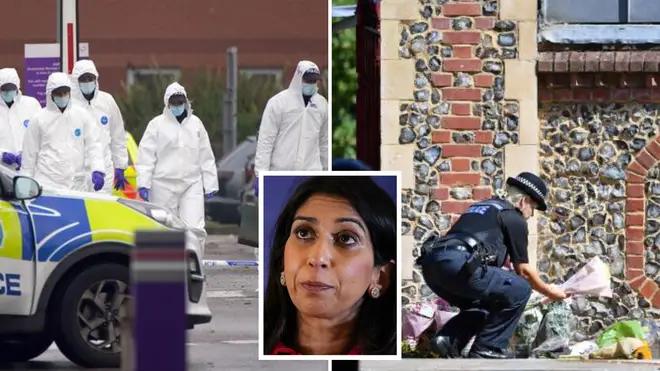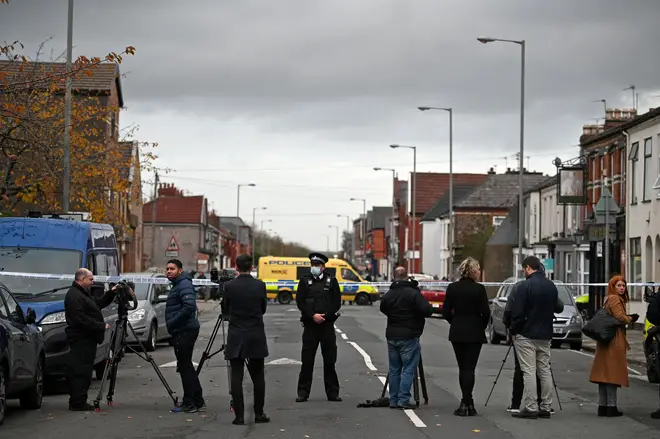
Shelagh Fogarty 1pm - 4pm
18 July 2023, 15:34

Some 39 terror plots have been foiled since 2018, with notable threats against Pride and members of Parliament, according to a report.
The risk from terrorism is "once again rising", the government's latest counter-terror strategy update (CONTEST) has warned. Nine attacks have taken place since 2018, when the strategy was last updated.
And home-grown terrorists are now "less predictable" and "harder to detect and investigate", the authors said.
Islamist radicals take up 75% of the time of MI5 counter-terror officers, with the remaining quarter focused on plots hatched by the far-right.
Home Secretary Suella Braverman said: "We now face a domestic terrorist threat which is less predictable, harder to detect and investigate; a persistent and evolving threat from Islamist terrorist groups overseas; and an operating environment where technology continues to provide both opportunity and risk to our counter-terrorism efforts.
Read more: 'ISIS Beatle' Aine Davis, 38, appears in UK court charged with terrorism offences

"We therefore judge that the risk from terrorism is once again rising."
The 39 foiled 'late-stage' attacks included targeting public figures like MPs, events like Pride, and "iconic" sites in London.
CONTEST said that there was "a persistent and evolving threat from Islamist terrorist groups overseas".
The UK's main domestic terror threat comes from Islamist terrorism, which accounts for about two-thirds of attacks since 2018, about three quarters of counter-terror MI5 resources and nearly two-thirds of people locked up for terrorism offences.
ISIS and Al-Qaeda are declining as influences on Islamist terrorists within the UK, the report said. "The absence of mass-appeal individuals linked to these groups, and the continuing societal shift to an online world have led to issues and grievances from a wider range of sources becoming ideological influences and drivers".

LBC: Ben Kentish discusses the 'dangers' of politicians overlooking far-right terrorism
The rest largely comes from terrorists driven by extreme right-wing ideology, according to CONTEST.
The strategy said that "unlike Islamist terrorist groups, extreme right-wing terrorists are not typically organised into formal groups with leadership hierarchies and territorial ambitions, but informal online communities which facilitate international links."
Terror attacks in Northern Ireland have persisted in recent years, but the response to them is managed by a different organisation. CONTEST said that between 2018 and April 2023, there were eight national security attacks in Northern Ireland, with police, soldiers and prison officers the primary targets.

The nine terror attacks that have taken place in the UK since 2018, killing six and injuring 20.
The attacks are:
Some 232 people are in prison for terror offences in the UK.
The strategy said: "Those convicted of terrorism or a related offence may continue to pose a threat; four of the nine declared terrorist attacks in the UK since 2018 were perpetrated by serving or recently released prisoners."